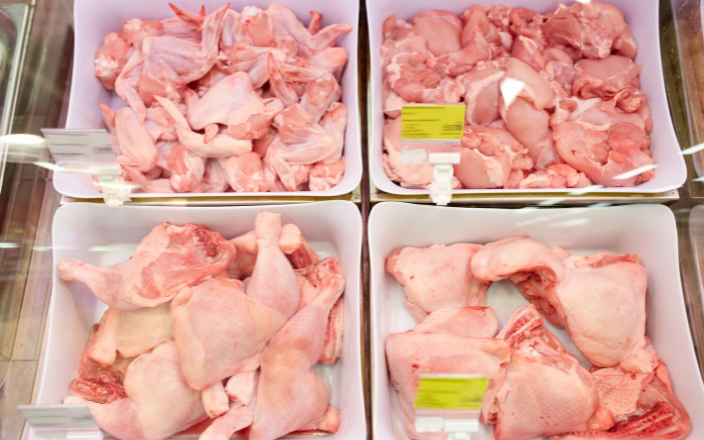In a move aimed at containing the spread of Newcastle disease, the Brazilian Ministry of Agriculture and Livestock has taken decisive action by temporarily suspending poultry and poultry product exports to 44 countries. This decision comes after the confirmation of an outbreak in the southern part of the country.
Newcastle virus causes a fatal infection in many types of birds and in humans causes mild flu-like symptoms, conjunctivitis and laryngitis.
The outbreak and its origins
Newcastle disease, caused by the avian paramyxovirus, poses a significant threat to both domestic and wild birds. The virus spreads rapidly within bird populations, leading to high mortality rates. In Brazil, the outbreak was first detected in Rio Grande do Sul, a major poultry-producing state. Authorities swiftly implemented measures to prevent further transmission.
Impact on international trade
The suspension affects key markets worldwide. China, Argentina, Peru, and Mexico are among the countries impacted by the export halt. These nations rely on Brazilian poultry products for their domestic consumption and industrial processing. The sudden disruption has raised concerns about supply chains and availability of affordable protein sources.
Export statistics and economic implications
Rio Grande do Sul, known for its robust poultry industry, exported 354,000 tons of poultry meat in the first half of 2024. This accounted for a substantial portion of Brazil’s total poultry exports. The revenue generated—approximately $630 million—highlighted the economic significance of this sector. However, the outbreak has disrupted trade dynamics, affecting farmers, exporters, and consumers alike.
Diplomatic negotiations and bilateral agreements
Brazilian authorities are actively engaging in diplomatic negotiations with partner countries. Bilateral agreements play a crucial role in determining the resumption of exports. The Ministry of Agriculture and Livestock is working closely with affected nations to ensure that safety protocols are met and that the outbreak is contained.
Monitoring and future outlook
The 21-day suspension period for the entire national territory allows time for thorough monitoring and assessment. Health officials are closely tracking the disease’s progression, conducting tests, and implementing biosecurity measures. As the situation evolves, Brazil remains committed to transparency and cooperation with its trading partners.
Conclusion
Brazil’s proactive approach underscores its commitment to public health and responsible trade practices. While the temporary suspension disrupts business as usual, it reflects a collective effort to safeguard both human and avian populations. As we await further updates, stakeholders across the poultry industry remain vigilant, hoping for a swift resolution to this viral challenge.
Sources: Available upon request

